
Nowadays Switzerland is known for its excellent quality dairy products and mineral water, but the Alpine country also has an alternative drinking tradition, which involves beer! According to the Swiss Embassy in Nairobi, in 2018, Switzerland had, with a number of 1,02, more breweries than the United Kingdom?!
And most of them launched by amateurs! So, with a trip around Switzerland done at the end of 2019, I thought the first post on Switzerland had to be on Swiss beer, because, why not?!
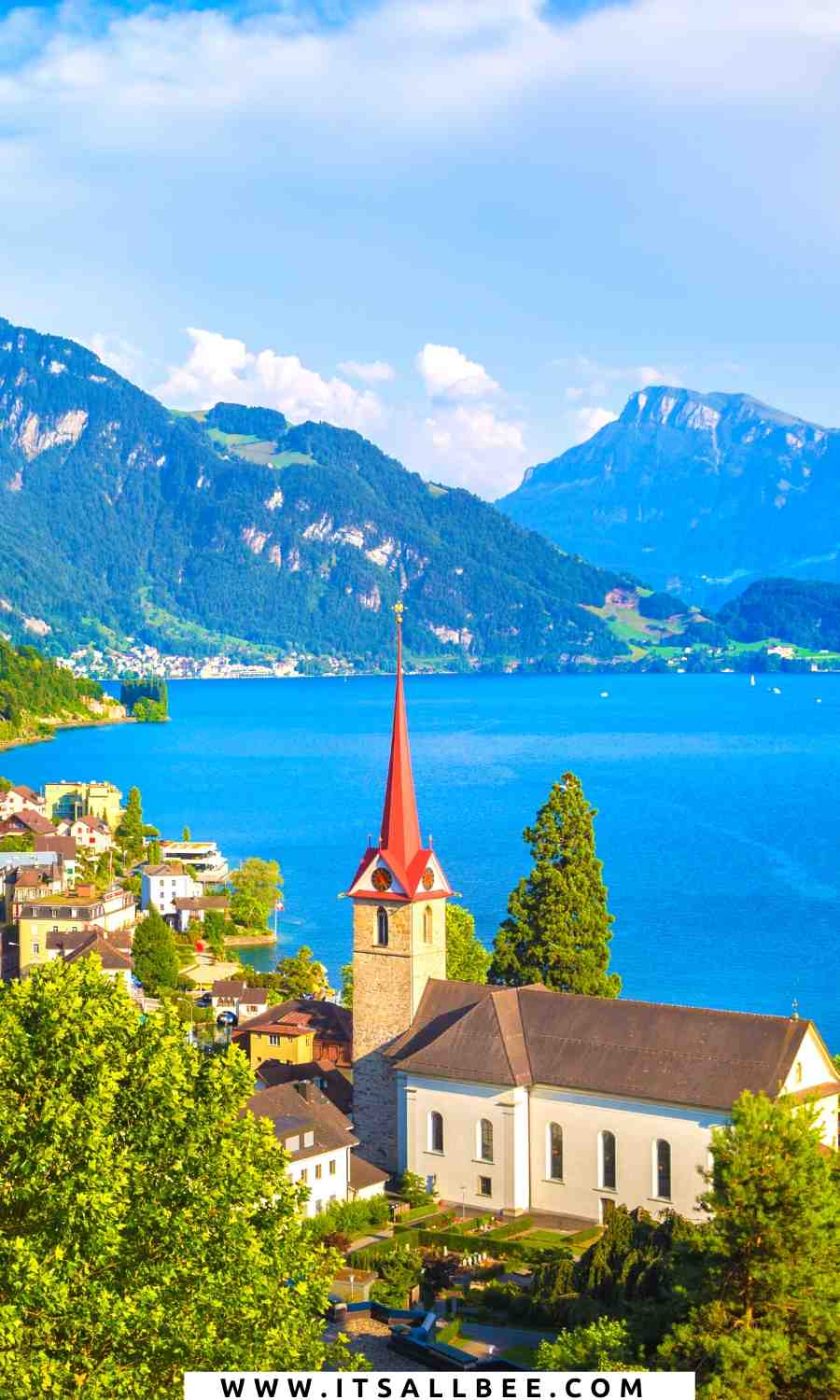
CONTENTS
Useful things to know about Swiss beer and culture
Although it may be hard to believe now, in the 17th century, the Swiss had a reputation for being a nation of heavy drinkers. Enjoyment of beer has a long tradition in Switzerland: As in other European countries, up until the High Middle Ages beer was a dietary staple that was made by women at home.
Although beer was mainly brewed in monasteries, and most importantly the monastery of St. Gall, which even had three breweries in the early 9th century (one each for monks, pilgrims and other guests).
When monasteries commercialized beer, and started selling it, the low prices they demanded provided competition for urban breweries and taverns. From the 15th century, monasteries were banned from selling beer in many regions, which led to the rise of commercial breweries.
In the 17th century, the Canton of Bern granted permission for the commercial production of beer outside monasteries for the first time which fueled the Swiss brewing industry. Already towards the end of the 19th century, beer had replaced wine as the Swiss national drink.
Now, let’s get back to present:
Even though beer may not be the thing that Switzerland is famous for, the Swiss consume a fair amount of it. With 54.3 litres of beer (2017) per person per year, the Swiss drink almost half as much beer per year as the Germans with 101.2 litres per person.
Evidently, beer is important to the natives and there is a high demand for it. And with a high demand, comes a big supply, and in case of Switzerland, a pretty varied one too! Numerous breweries emerged on the Swiss beer market over the past few years which offer a range of artisanal specialties.

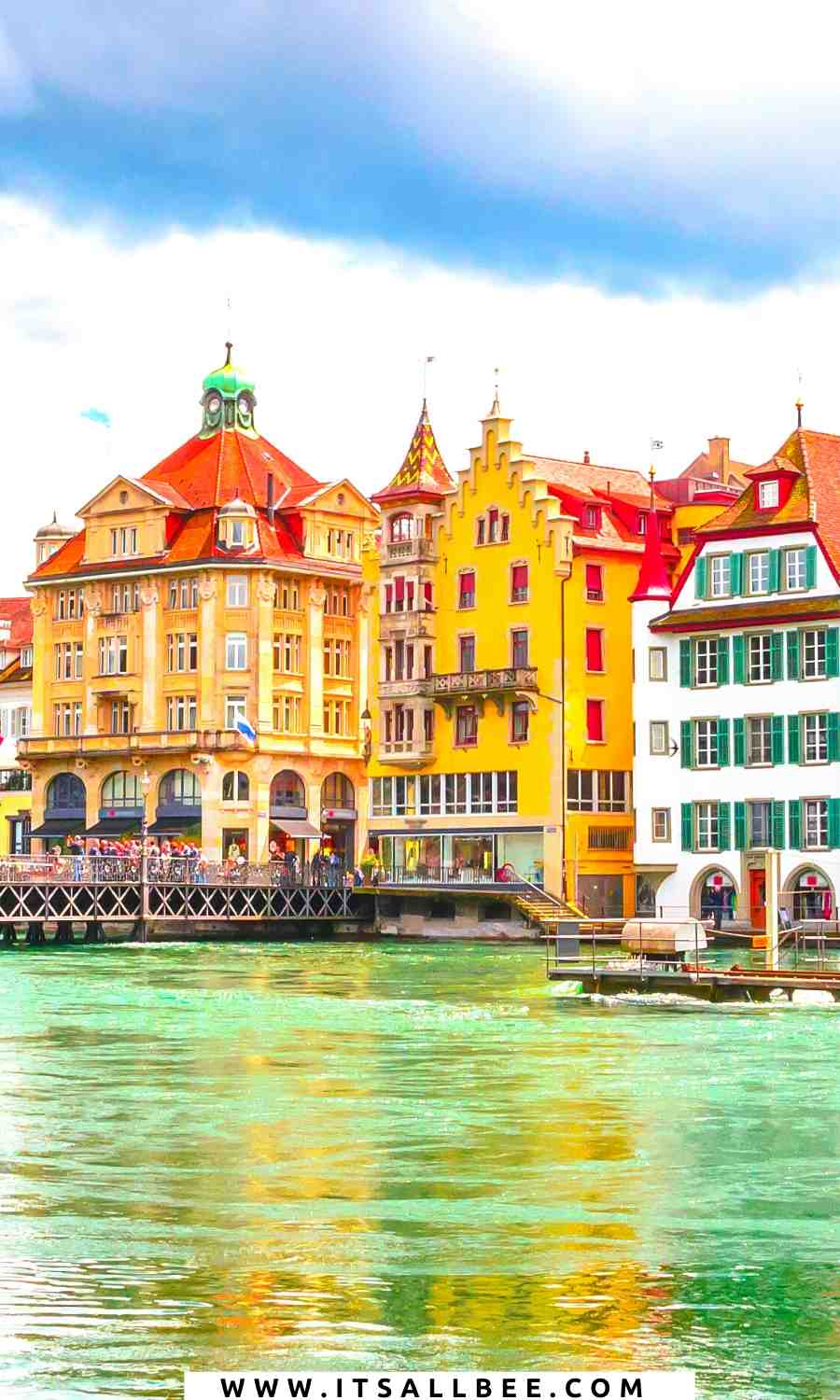
Beer culture in Switzerland
The legal drinking age in Switzerland is 16 for beer, wine and cider and 18 for spirits and there are no minimum prices, unlike Norway, Scotland and Sweden, where the prices are fixed by a state monopoly.
In Switzerland, according to the traditions, you wait until everyone has been served a drink and then you clink glasses with everyone at the table or in the group saying ‘santé, or ‘Prost‘ (if you are from a different part of German-speaking Switzerland).
It is important to look in the eye of the person when you clink your pints, and only once everyone has done it, you can you take your first sip.
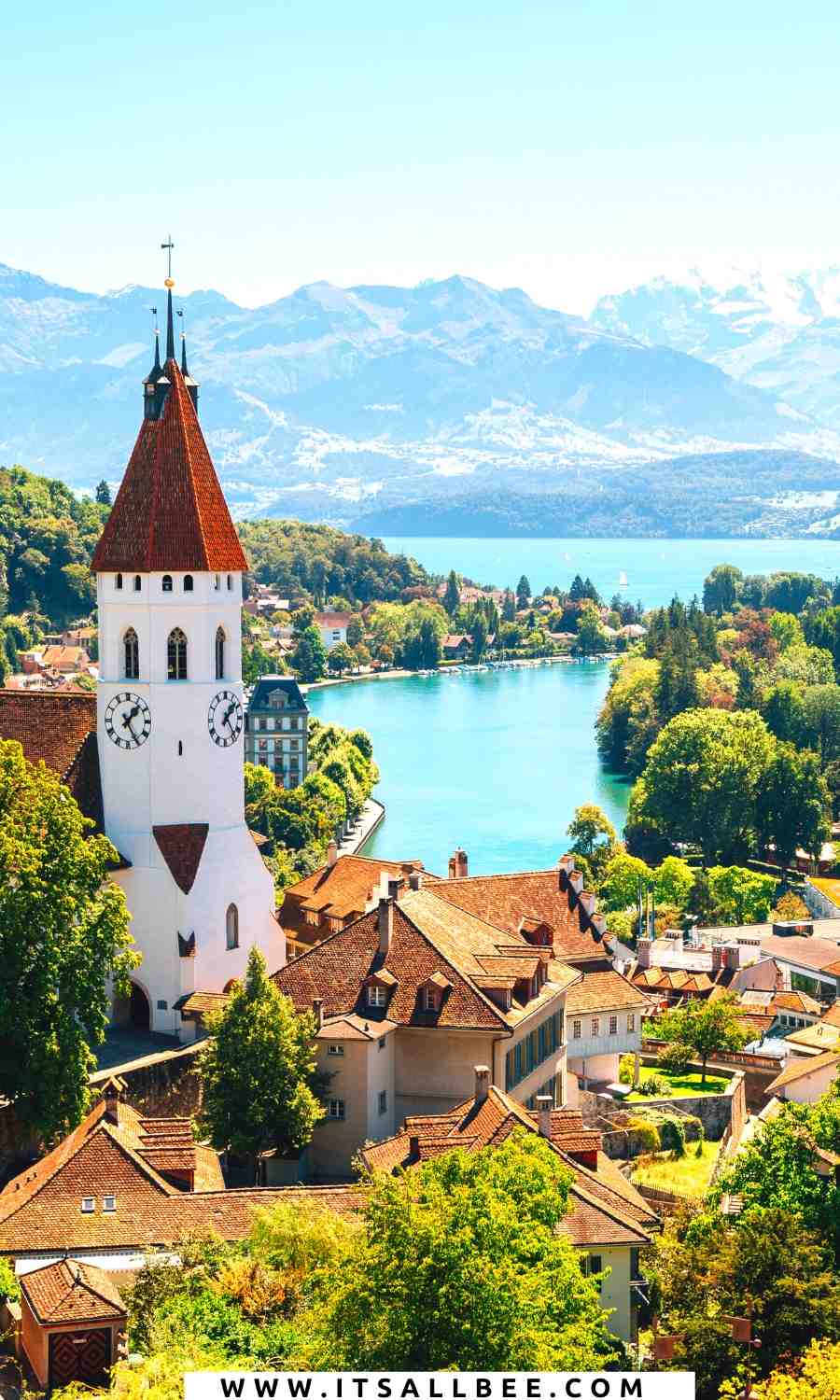
Swiss Beers to try
There are many beer tours throughout Switzerland that combine exploring the food scene and Swiss sights in one tour. You can explore the city and its breweries. Like in many other European countries, the number of local breweries in Switzerland has been on the rise.
There is a relatively large variety of beers to choose from, whether you’re into craft or draft. Lager is the most popular beer among Swiss consumers. Generally, most smaller breweries will offer 4-5 kinds of beers: Lager, unfiltered, wheat, amber and a dark one. If you happen to be a beer lover travelling in Switzerland, here is a list of beers that we recommend you try:
Quöllfrisch (4.8%)
A rich yellow lager, characterized by its mild and slightly fruity flavour. Brewed from Pilsner malt and three different varieties of hops from Stammheim and Hallertau.
Tram-Märzen (5.1%)
Non-filtered, an amber beer specialty brewed with Wiener-, Pilsner- and dark Caramel malt and Saaz Hops, malty taste, bottom fermented.
Mielfiore (4.6%)
Swiss honey lager, localy brewed. Pleasant gold colour, slightly cloudy. Good aroma, slightly herbal. Don’t be fooled! It does not smell as good as it tastes. It isn’t too sweet, but maintains the complex floral flavour of really good quality mountain honey and is also slightly reminiscent of rosewater. It is a beer that has a unique taste, but not too heavy. Perfect for those beer explorers, who are into softer flavours.
Meule (6%)
Herb and Spice Beer style beer. La Meule is one of the most BFM daring beers, one of the most creative Swiss breweries. Produced in the Swiss Alps, this is a dark golden beer brewed with sage, with a herbal aroma, with sweetened citrus notes. A very interesting amber color and a white foam without much persistence. A good option for those who like more exotic beers and is willing to expand the palate.
Brewstache (6.2%)
A one-shot brew, brought to life by the creative minds of La Nébuleuse’s crew. Brewstache is a brew made exclusively during Movember, a month where the brewery intensively supports research on prostate cancer. Brewstache has a smooth malted body and a rich creamy head. Smoked beechwood, ham, leather, and biscuit are what you’ll find in your glass. Some say it tastes like liquid bacon.
Valaisanne White IPA (6.0%)
It is a combination of two beer styles: wheat & IPA. The yeast used in wheat beer with notes of banana and clove are in perfect complement to the fruity aroma of the Cascade, Citra and Simcoe IPA hops. According to the brewery, they got inspiration for this particular White IPA from Valais’ two distinct regions – the Upper and the Lower Valais.
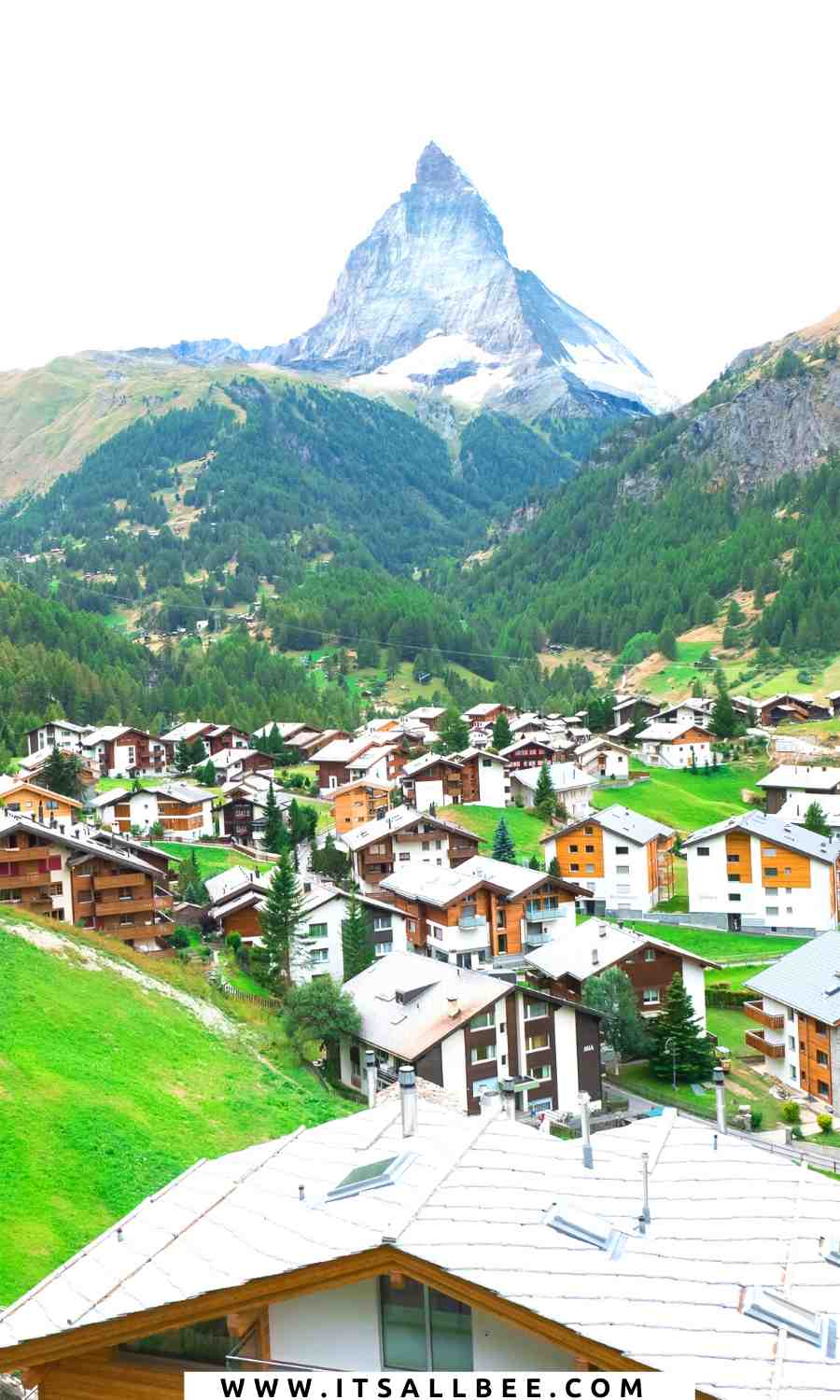
There are plenty of occasions to celebrate this godly beverage in Switzerland! Here are 3 festivals that take place in Spring and Summer. It is hard to choose one, and if you can’t either, just attend all of them!
Swiss Beer Day
Swiss Beer Day, the 7th of August in 2020, celebrates the start of the brewing season, and even though it is not an event that takes place in one particular place, it is pretty impressive that the Swiss have a day like this one, which says a lot about their warm feelings towards beer! Various small events take place throughout the bigger cities on that day usually organised by pubs and small breweries.
“Let it Beer” festival
A weekend dedicated entirely to regional beers and breweries: on 27 and 28 March 2020, over 30 breweries celebrate beer culture at the “Let it Beer” festival in Burgdorf in the Emmental.
It is a great opportunity for all beer aficionados and connoisseurs alike to explore and discover new tastes among a big variety of Swiss beers. More than 30 regional breweries will be present on 26th and 27th of March 2020 to tap their kegs and present their specialties.
“Little Bavaria”, which is how natives used to call Burgdorf is back and is ready to celebrate the unique diversity of the regional beer culture.
Zurich Beer Festival
Between April 16th to 18th, everything in the west of Zurich revolves around beer. At the Zurich Beer Festival, visitors can taste and enjoy beer as long as they can still stand up.
Various breweries from all over the world present over 300 different types of beer. Here, the focus is placed on tasting a wide variety of beers. The strength of the beer, the time and effort invested in brewing it, and the volume produced are all decisive for the price of the taster beers, which are served in 1dl measures.
In addition, various food trucks and the Hotel Spirgarten, which is hosting the event, keep visitors’ hunger at bay.

Places to buy Swiss beers
If you want to indulge in some good beer but don’t feel like going to a bar or pub, head to a shop called “Drinks of the World”, which is recommended by many locals. You can find a wide variety of drinks there, including many types of beer.
So, I hope that by reading this you learned something new about Swiss beers and Swiss brands of beers. To finish off, we will leave you a wise quote by Thomas Jefferson, “Beer, if drank with moderation, softens the temper, cheers the spirit, and promotes health.“ So, enjoy your beer, and keep discovering something new!
Love Beer? Also Check Out My Other Guides:
- Icelandic Beers To Good To Miss
- A Taste Of Ancient Greece Through Beer
- Best Norwegian Beers To Check Out
Found This Post Useful? Pin & Share!
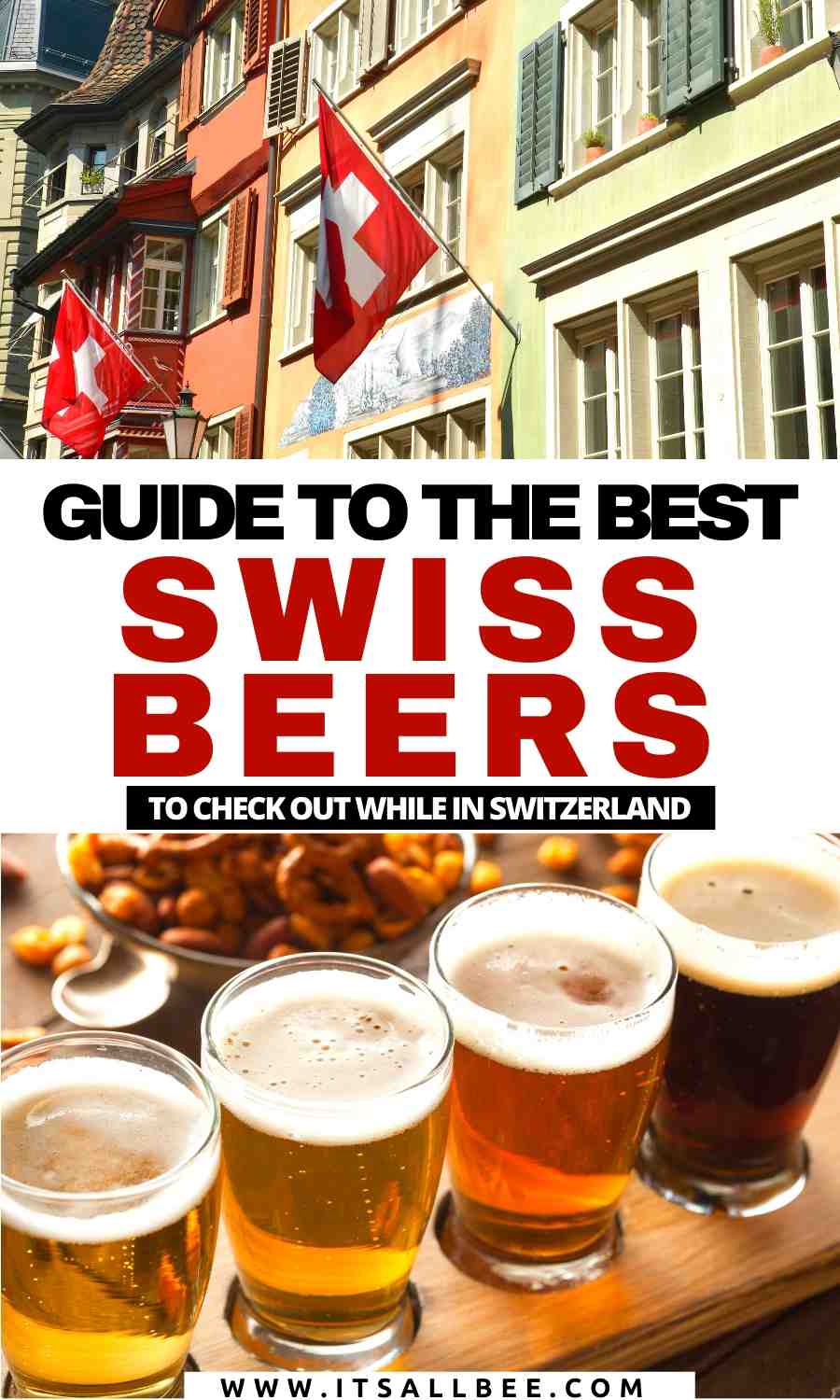
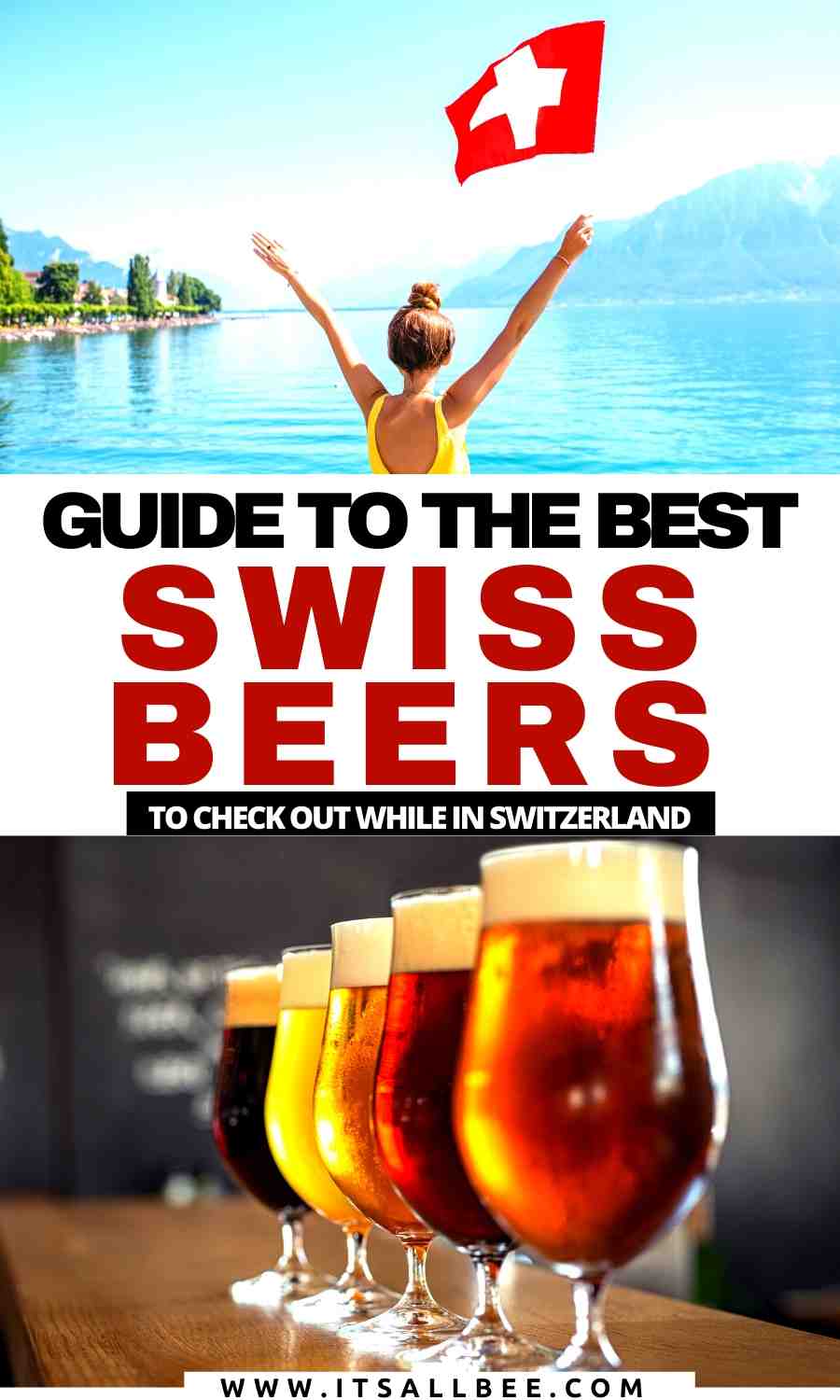
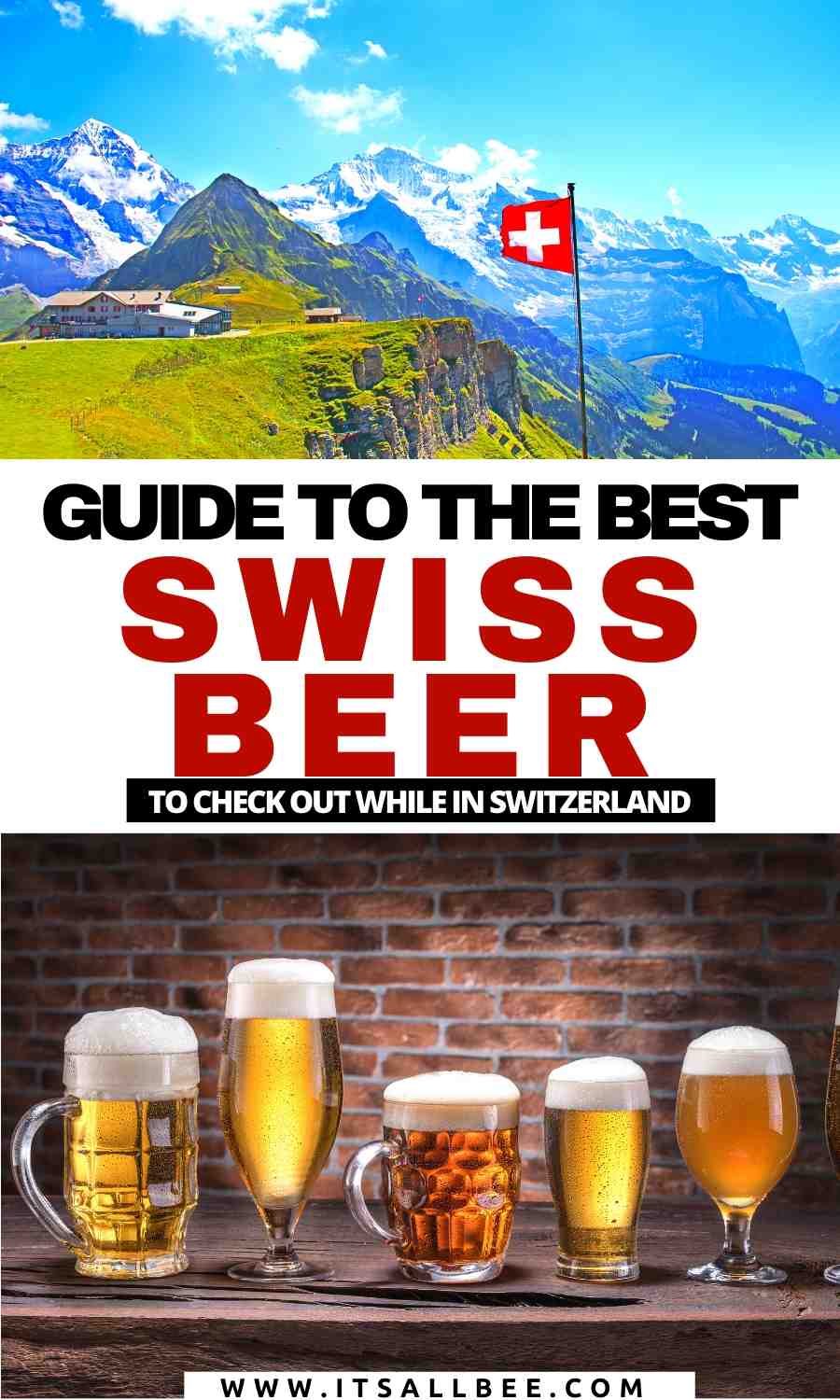

Leave a Reply